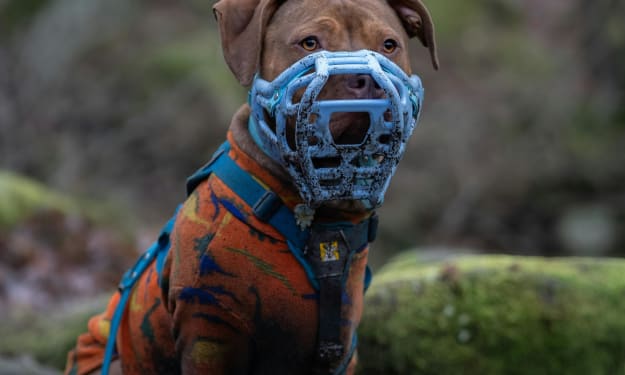"The Evolution and Impact of Domesticated Animals: A Comprehensive Overview"
"Tracing the history of animal domestication from ancient times to modern day factory farming and its impact on human civilization, environment and ethics"

"The Evolution and Impact of Domesticated Animals: A Comprehensive Overview"
The domestication of animals is a process that has been ongoing for thousands of years. It is believed that the first domesticated animals were dogs, which were likely tamed by humans as early as 15,000 years ago. This was followed by the domestication of sheep, goats, pigs, and cattle, all of which are believed to have been domesticated around 10,000 years ago

Over time, humans have selectively bred these animals to have certain desirable traits, such as larger size or more meat. This process of selective breeding has led to the development of distinct breeds of each species, each with their own unique characteristics.
Domesticated animals have played a vital role in human civilization, as they have been used for food, transportation, and labor. They have also played an important role in the development of agriculture and the rise of human civilization.
The domestication of animals has also led to the domestication of plants, as animals were used to help cultivate and spread crops. This led to the development of agriculture and the rise of human civilization.

Domesticated animals have also been used for entertainment, such as horse racing, bullfighting and dog shows.
However, domestication also had negative impact on the wild populations of animals, as it alters the ecosystem and genetic diversity. The domestication process has led to the loss of genetic diversity, which makes the domesticated animals more susceptible to diseases and less able to adapt to changing environmental conditions.
Overall, the domestication of animals has had a profound impact on human civilization, shaping the way we live and interact with the world around us.
The domestication of animals, humans have also domesticated a wide variety of birds, including chickens, ducks, geese, and turkeys. These birds were primarily domesticated for their eggs and meat, but some, like chickens, were also kept for their feathers.

Camel and llama were also domesticated around 4000 years ago in the Andes, South America to be used as a means of transportation and a source of meat and wool.
Domestication has also led to the development of specialized breeds of animals that are suited for specific tasks or environments. For example, there are breeds of cattle that are well-suited for cold climates, and others that are well-suited for hot climates. Similarly, there are breeds of dogs that are well-suited for hunting, and others that are well-suited for herding.
Over time, domesticated animals have also been used in various forms of therapy and service to help people with special needs. For example, horses are used in equine therapy to help people with physical and mental disabilities, and dogs are used as service animals to assist people who are blind or have mobility issues.
The domestication of animals has also had a significant impact on human culture, with many cultures developing myths, rituals, and traditions related to specific animals. For example, cows are considered sacred in Hinduism, and horses have played a significant role in many cultures, including the nomadic cultures of the steppes and the ancient cultures of Greece and Rome.

In recent times, domestication has also led to the factory farming and intensive animal rearing, which has been subject to criticism due to ethical, environmental, and public health concerns.
Overall, the domestication of animals has been an ongoing process that has shaped human civilization in many ways, from providing food and labor to shaping culture and tradition. It has also brought many benefits but also raised ethical and environmental concerns that are still debated today.
Another important aspect of the domestication of animals is the genetic changes that have occurred as a result of selective breeding. Domesticated animals have been bred over many generations to have specific characteristics that are desirable to humans, such as larger size or increased milk production. This has led to a significant genetic divergence between domesticated animals and their wild ancestors.
For example, domesticated cattle have been bred to be larger and have more meat, while domesticated pigs have been bred to have a higher fat content. These genetic changes have led to animals that are better suited to human needs, but also less able to survive in the wild.
The domestication of animals has also led to the development of new technologies and methods for animal husbandry. For example, the invention of the plow and the use of irrigation have allowed for the cultivation of crops in areas that were previously unsuitable for farming. Similarly, the development of vaccines and antibiotics has greatly improved the health and welfare of domesticated animals.
The domestication of animals has also led to the spread of animal-borne diseases, which can be transmitted to humans through close contact with domesticated animals. The most well-known example of this is the spread of zoonotic diseases such as the bubonic plague, which is believed to have originated from domesticated rats.
Overall, the domestication of animals has had a complex and multifaceted impact on human society and the natural world. While it has brought many benefits, it has also led to negative consequences that must be carefully managed in order to ensure the sustainable use of domesticated animals in the future.





Comments
There are no comments for this story
Be the first to respond and start the conversation.